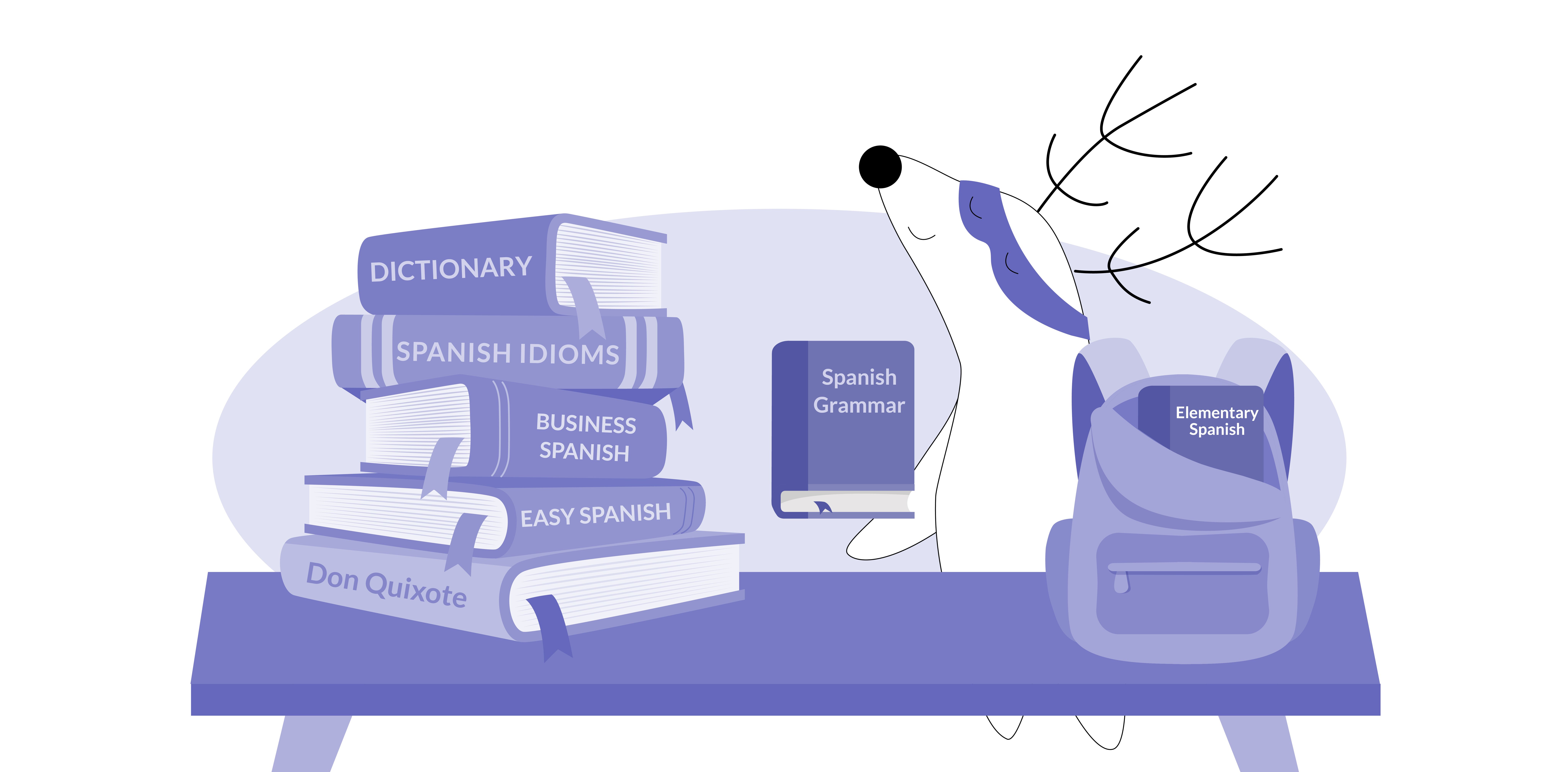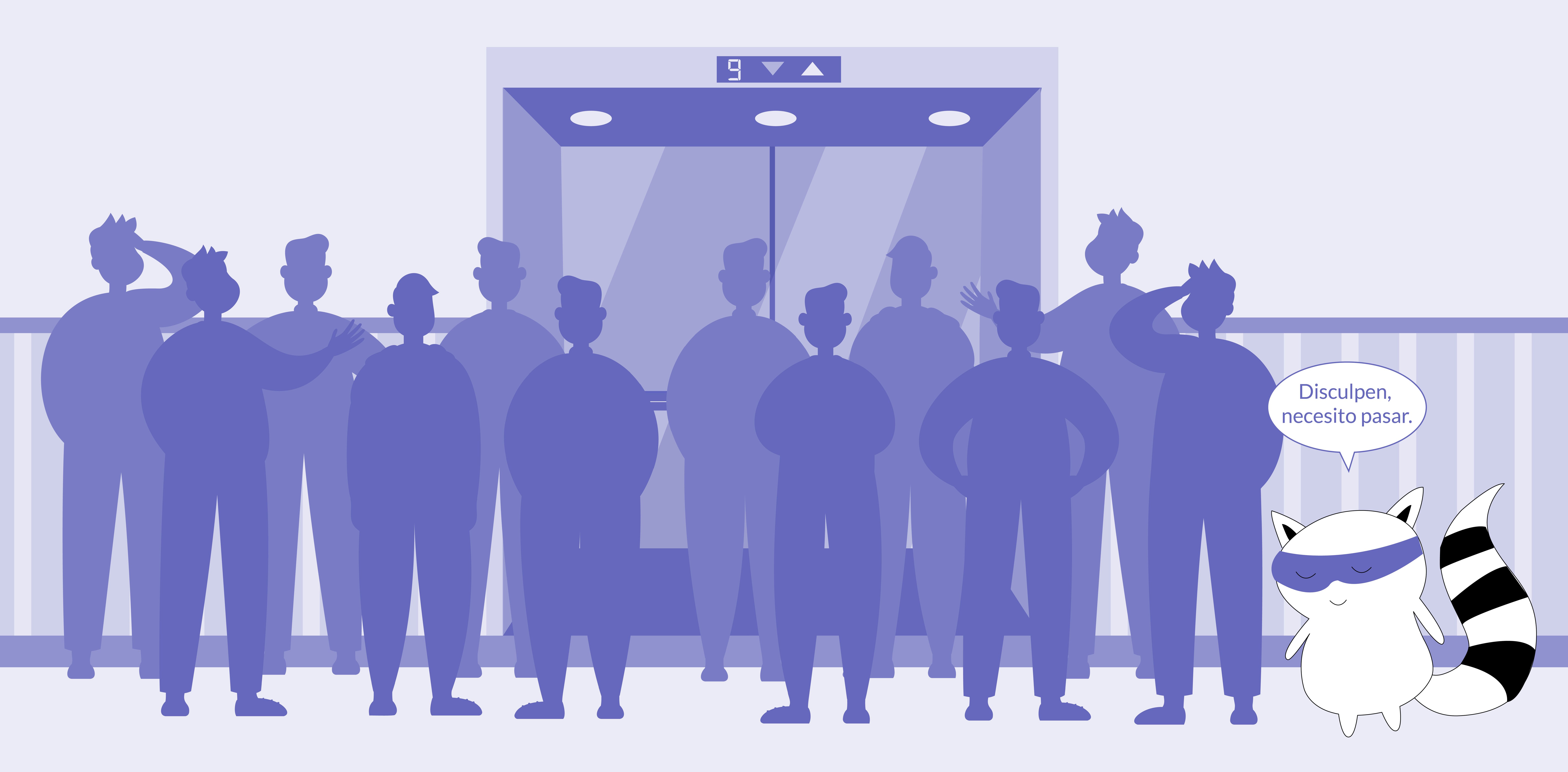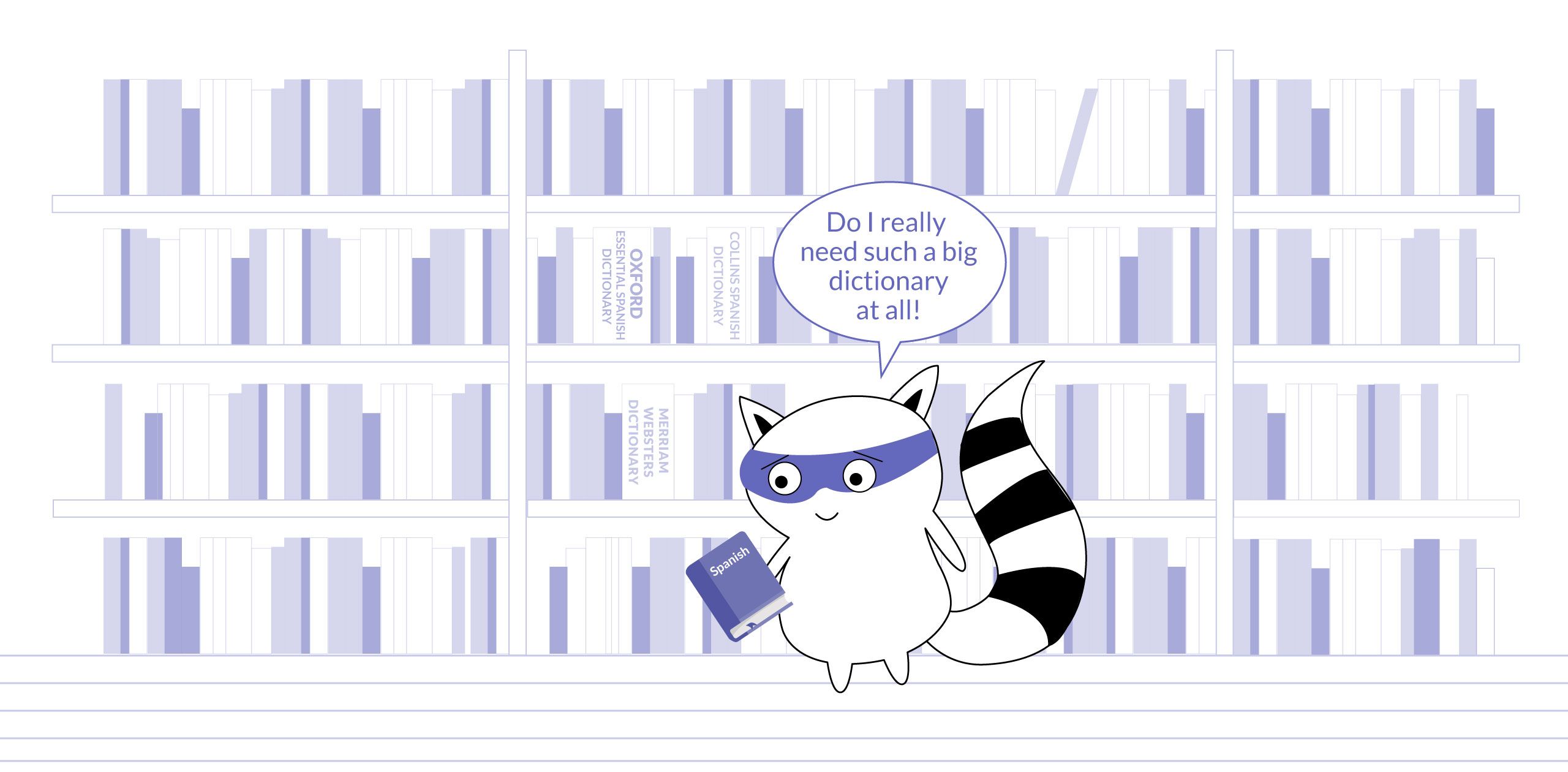
No matter what level you are at in your Spanish language learning journey, having a good dictionary is essential. Fortunately, there are a number of excellent Spanish to English dictionaries available, both in physical and online form.
A comprehensive bilingual dictionary is the most useful, but online Spanish dictionaries can be a great complement to your physical one. For example, if you're just starting out or need help with pronunciation or verb conjugations, there are dictionaries that focus specifically on that.
So, let's have a closer look at how to choose from the best Spanish dictionaries and how to effectively use them, so you can continue with your Spanish learning journey!
Learn Spanish with Langster
Do You Really Need a Spanish Dictionary?
Anyone who wants to learn Spanish will find that there are a number of different approaches they can take. Some people prefer to study in a classroom setting, while others prefer to learn on their own with the help of audio and video materials.
And there are also plenty of language learners who like to combine the two approaches, studying in a Spanish class and then using audio and video resources to review what they've learned and practice their skills. No matter what method you prefer, there's one tool that is absolutely essential for anyone who wants to learn Spanish: a good dictionary.
A good Spanish dictionary can be an invaluable resource, whether you are just starting out or you're already quite proficient in the language. It can help you with everything from basic English definitions and Spanish slang to verb conjugations and sentence examples.
Besides, it's a great way to look up new Spanish words and synonyms or check your understanding of the words you already know. As such, a comprehensive online Spanish dictionary is a much more reliable option than using Google Translate.
Below, we'll take a look at some of the best Spanish dictionaries out there and help you choose the right one for your needs.
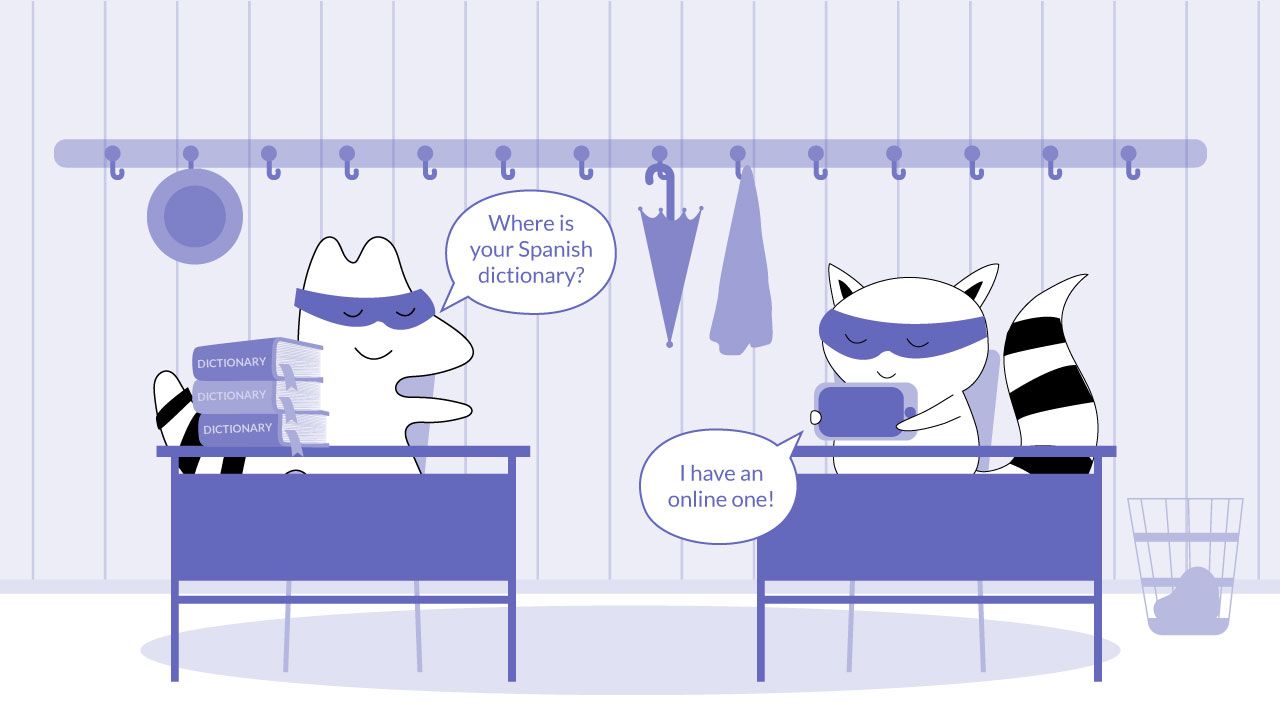
What to Consider When Choosing a Spanish Dictionary?
When it comes to choosing a Spanish dictionary, there are a few things you should keep in mind. The first thing to consider is the different types of dictionaries available. Some dictionaries are designed for beginners and focus on basic vocabulary, while others are more comprehensive and include more advanced words and concepts.
Another important factor is whether or not the dictionary includes conjugations for verbs. This can be extremely helpful when trying to learn the language, as it can be difficult to keep track of all the different verb conjugations on your own. There are also dictionaries that focus specifically on verb conjugations, which can be helpful if you're having trouble with that aspect of the language.
Then, you need to ensure that your Spanish dictionary is comprehensive, meaning that it offers definitions in both Spanish and English for all words. Additionally, it's important that the dictionary be easy to navigate through, with clear and concise definitions and example sentences.
Another thing to keep in mind is whether you want a physical dictionary or an online one. Physical dictionaries are great because you can use them without an internet connection, but many online dictionaries are often more up-to-date and have search functions, making them another valuable resource.
Finally, you should also consider whether you want a multilingual dictionary or one that is specifically Spanish to English. Multilingual dictionaries can be helpful if you're also learning another foreign language, but they're not always necessary. If you're primarily interested in learning Spanish, an English-Spanish dictionary will probably be more helpful.
Keeping these things in mind, let's take a look at some of the best Spanish dictionaries that are available.
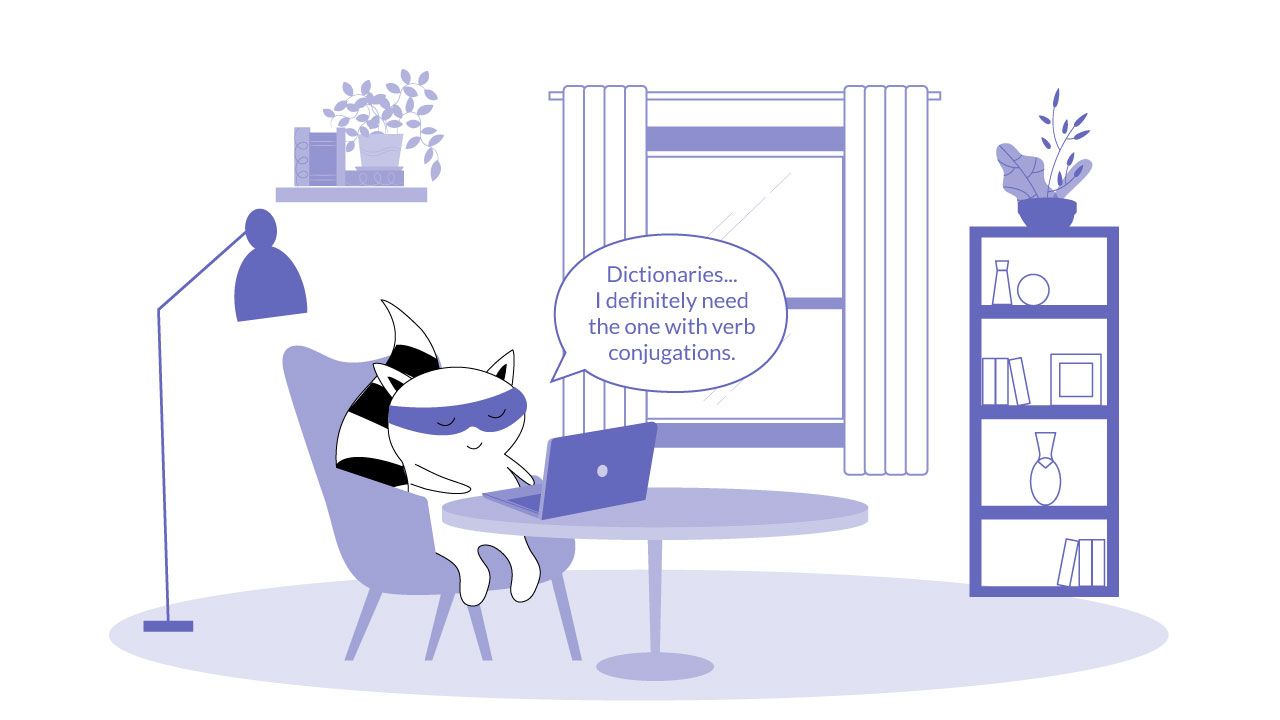
Best Spanish Dictionaries to Choose From
Here are some of our top choices for Spanish dictionaries.
Oxford Essential Spanish Dictionary
This comprehensive dictionary is perfect for those who are serious about learning Spanish. It includes up-to-date coverage of all the essential day-to-day vocabulary with over 40,000 words and phrases and 60,000 translations. It also has handy sections on Spanish verbs, irregular English verbs, and tools to help with pronunciation.
It's important to note that this dictionary covers both European and Latin American Spanish, making it an ideal pick for studying Spanish in many different places.
Pocket Oxford Spanish Dictionary
Alternatively, you can also consider the Pocket Oxford Spanish Dictionary. This dictionary is a good option for those who are looking for a more compact reference. It includes over 90,000 words and phrases, and 120,000 translations of contemporary Spanish.
In addition, it has a grammar supplement that provides full information on all the key points of Spanish grammar, including verb tables for quick references. This makes it a useful option for those who are still learning the language, because you retain words better when you need to look them up in a physical book.
Merriam-Webster's Word-for-Word Spanish-English Dictionary
This dictionary is a great option for those who are looking for quick references and includes up-to-date coverage of essential, current vocabulary. It’s a bilingual and bidirectional (English to Spanish and Spanish to English) dictionary with 53,00 entries and more than 2,000 new words from areas such as science, medicine, technology, and popular culture.
It also has a user-friendly format, making it easy to search through and is recommended for use in settings where a translation-only dictionary is allowed, such as in the classroom or during standardized tests.
Collins Spanish Dictionary & Grammar
This dictionary is another good option for those who are serious about learning Spanish. It includes over 80,000 references and 110,000 translations, along with a comprehensive grammar guide – the perfect complement to the dictionary.
There, you will also find headwords in color, cultural notes, and easy-to-use grammar sections that make this Spanish dictionary ideal for intermediate learners. You can also access a free online Spanish dictionary at Collins website.

SpanishDict
This is one of the best online Spanish dictionaries and a valuable resource that offers a comprehensive dictionary as well as a conjugation tool. In addition, it has other resources such as grammar lessons and forums where you can ask questions and get help from other Spanish learners.
It's perfect for those who are looking for a diverse Spanish learning resource. However, it's important to note that this resource is only available in English.
WordReference
WordReference is one of the best Spanish resources available online. It is an online translation dictionary for those who are looking for both English and Spanish definitions.
It also provides direct links to English dictionaries and features a forum where you can ask questions about specific words or phrases, as well as grammar explanations.
Reverso
Reverso offers you the best tool for learning Spanish – a Spanish-English dictionary containing commonly used words and expressions, along with thousands of Spanish entries alongside their English translation, presented in context.
You can also get quick access to synonyms, pronunciation, and conjugation of a Spanish word.
Urban Dictionary
While Urban Dictionary concentrates primarily on English slang, this online dictionary can also be a good option for those who are looking for definitions of Spanish slang words and phrases.
However, it's important to note that this resource is only available in English and is user-generated, so if you’re looking for literal translations, it might be best to rely on a word-for-word Spanish-English dictionary.
So there you have it! These are eight of the best Spanish to English dictionaries to choose from.
How to Use a Dictionary Effectively
When it comes to using a physical Spanish dictionary, there are a few things that you should keep in mind:
- Make sure to have a pencil and paper handy so that you can mark or write down any words or phrases that you don't understand. Even if you’re using an online dictionary, writing things down helps you retain information.
- Look up words and phrases in both English and Spanish. This will help you to better understand the definitions.
- Use the verb conjugation tables to help you with your Spanish verbs.
- Don't be afraid to ask for help from a native speaker if you're having trouble understanding a word or phrase.
- Practice, practice, practice! When you use your dictionary effectively and regulary, you become more proficient in the language.
Conclusion
Choosing the right Spanish dictionary can be a daunting task. However, with so many great options available, you're sure to find one that meets your needs. Keep in mind the things that are important to you when choosing the best Spanish dictionary for your needs, such as whether it has verb conjugation tables or not.
Don’t forget to use your dictionary effectively by looking up words in both English and Spanish, writing things down, using the verb conjugation tables, and practicing as much as you can. With a little bit of effort, you'll be on your way to becoming a Spanish language expert in no time!

Additionally, consider downloading our Langster app – it also provides premium instant translation along with grammar explanations, allowing you to grow your vocabulary. Good luck!







